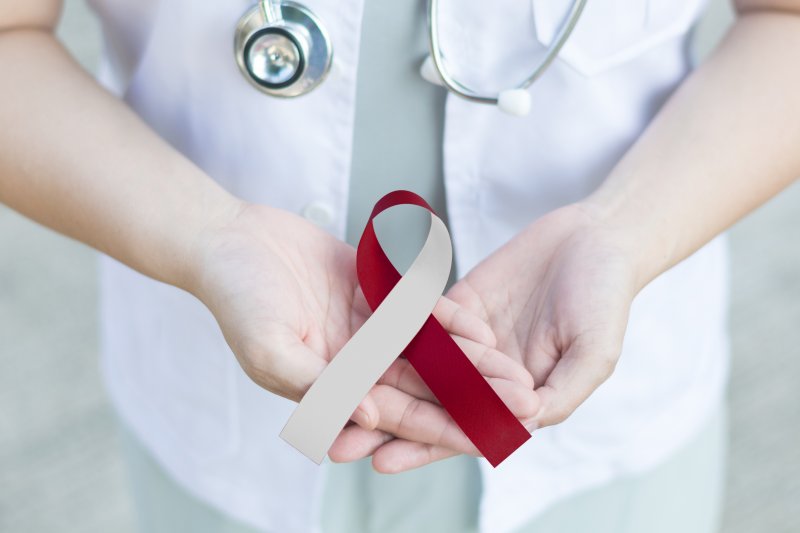
Oral cancer is an incredibly dangerous, sometimes deadly disease. Oftentimes, it isn’t detected until its later stages when it is especially detrimental. Fortunately, when detected and treated early on, many people end up making a full recovery. In honor of Oral Cancer Awareness month, continue reading to learn about some of the different risk factors and signs of oral cancer so they can be addressed quickly.
What Are the Risk Factors of Oral Cancer?
Here are some of the factors that can increase your likelihood of developing oral cancer:
- Tobacco Products: Smoking cigarettes, cigars, pipe tobacco, or chewing tobacco increases your risk for oral cancer. About 90% of people diagnosed with oral cancer use tobacco products.
- Heady Drinking: People who drink alcohol heavily are more likely to be diagnosed with oral cancer. This is even higher if you also use tobacco products.
- Sun Exposure: Excessive sun exposure to the lips can increase your risk of oral cancer.
- Human Papillomavirus (HPV): Oral cancer can develop as a result of HPV. This is typically found in the back of the throat, the base of the tongue, and in the tonsils.
- Age: Adults over the age of 45 are more likely to develop oral cancer.
What Are the Symptoms of Oral Cancer?
Here are some of the signs that could point to oral cancer. Let your dentist know if you notice any of the following:
- Sores in the mouth
- White or red patched
- Swelling of the neck
- Difficulty swallowing
- Trouble chewing
- Weight loss
- Halitosis (bad breath)
- Lump in the cheek
- Difficulty moving the jaw or tongue
How Can Oral Cancer Be Prevented?
There are several measures you can take to reduce your risk of developing oral cancer:
- Don’t use tobacco products
- Maintain a healthy, well-balanced diet
- Practice excellent oral hygiene
- Only drink alcohol in moderation
- Limit sun exposure
- Use a lip balm containing SPF
- Remove dentures at night and clean them daily
- Attend regular cleanings and checkups at the dentist.
Oral cancer is a serious illness, but when it’s detected early on, it is often treatable, so don’t skip your oral cancer screenings at the dental office. By using the tips listed above, you can set your smile up for success!
About the Author
Dr. Beverly Rose is an experienced dentist who has been working in the field for more than two decades! She earned her dental doctorate from the University of Florida College of Dentistry and is an alumnus of the prestigious Las Vegas Institute. She also regularly attends seminars through the International Association of Comprehensive Aesthetics as well as the American Dental Association and the American Academy of Cosmetic Dentistry. To learn more about oral cancer or to schedule an appointment at her office in Melbourne, visit her website or call (321) 259-4666.
